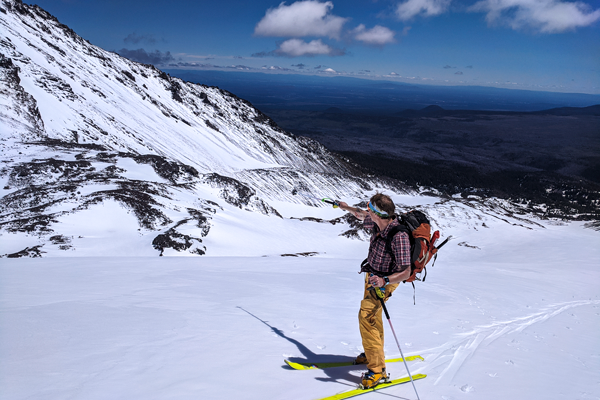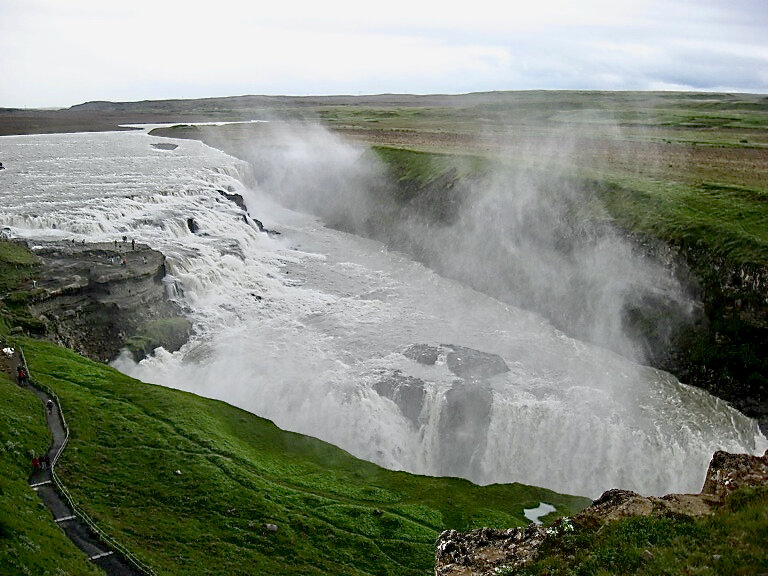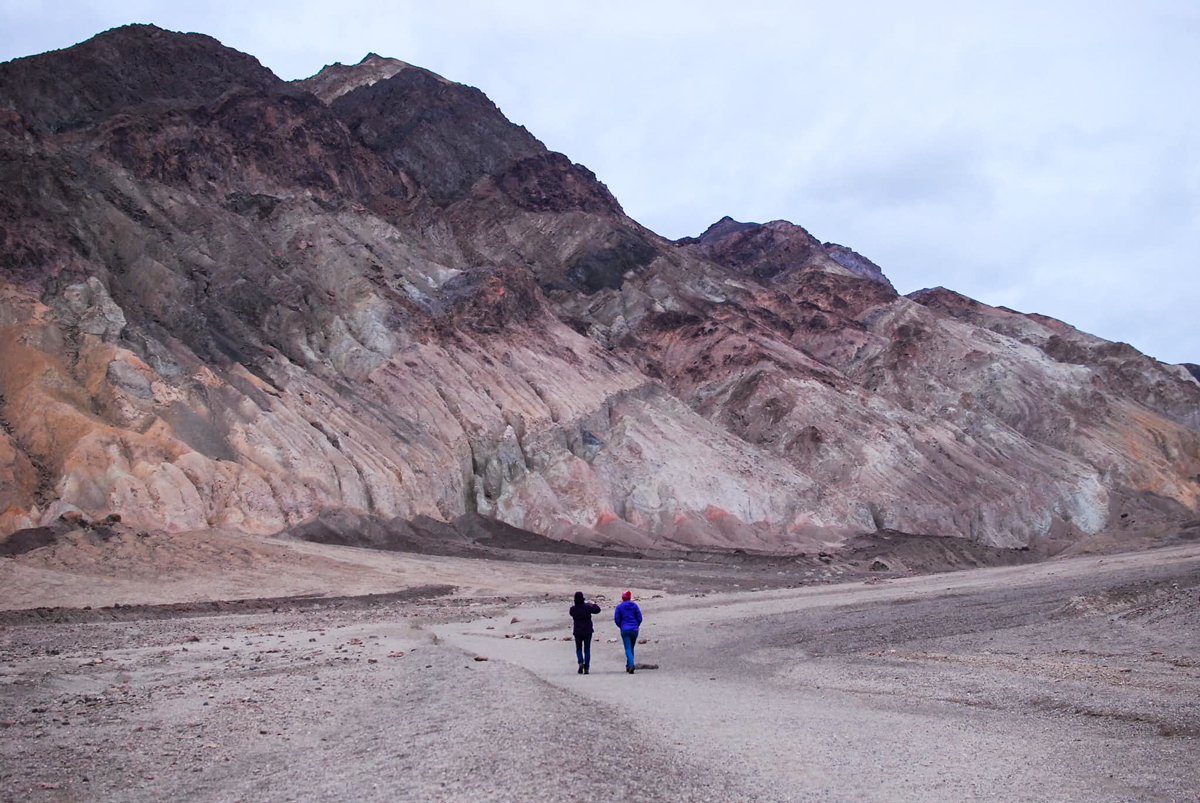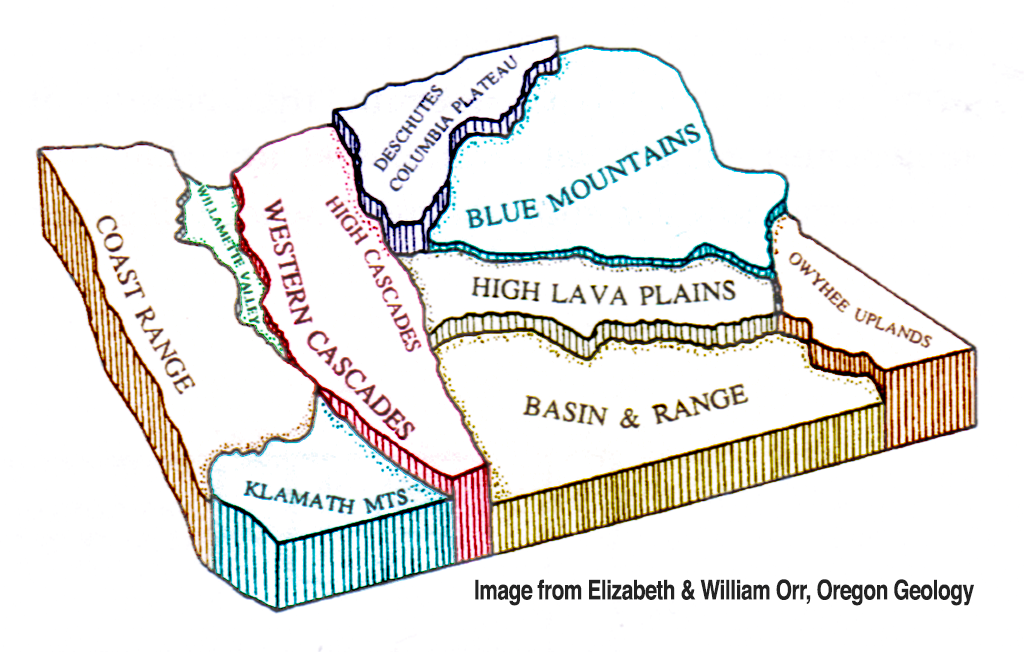Upcoming Events

Friday Night Lecture: Stories in Stone
Most people do not think of looking for geology from the sidewalks they travel, but for the intrepid geologist any good rock can tell a fascinating story. All one has to do is look at building stone in any large city to find a range of rocks equal to any assembled by plate tectonics. Furthermore, building stones provide the foundation for constructing stories about cultural as well as natural history. In his talk, David will explore stone ranging from 3.5-billion years old to 120,000 years old, the most commonly used building stone in the country, and rock used by the Romans to build the Colosseum. He will discuss history, transportation, and architecture to give you a new way to appreciate urban geology. Plus, we’ll even be“visit" a couple of quarries and see where the stone originates.
David B. Williams is an author, naturalist, and tour guide whose award-winning book Too High and Too Steep: Reshaping Seattle’s Topography explores the unprecedented engineering projects that shaped Seattle during the early part of the twentieth century. This talk is based on Stories in Stone: Travels Through Urban Geology. Williams is also a Curatorial Associate at the Burke Museum. His next book, Homewaters: A Human and Natural History of Puget Sound, will be published in April 2021.

GSOC Zoom Meetup: Geology News and Rock Show-and-Tell
All are welcome — no geological expertise is required — just curiosity about geoscience! This will be a casual conversation about news in geology this month followed by "show and tell." Sign up at our Meetup site.

Friday Night Lecture: Monitoring Our Vanishing Glaciers
Almost a century ago, scientists and mountaineers in Oregon observed the retreat of Oregon’s glaciers and raised alarm over the potential for an ice-free Oregon in the not too distant future. That future has now arrived. The recently founded Oregon Glaciers Institute (OGI) is monitoring changes in Oregon’s endangered glaciers with the goal of projecting their viability. OGI recently concluded a state-wide survey of how many glaciers remain in Oregon with an estimate of how many existed more than 60 years ago when the last such census was conducted. In this presentation, we will look at the implications of these findings and why such changes are occurring (including Oregon’s geology and climate change), with a final note on how one can help in preserving Oregon’s vanishing glaciers.
Dr. Anders Carlson fell in love with glaciers as an undergraduate student while conducting research at Matanuska Glacier in Alaska. After receiving his B.A. in Geology and German from Augustana College, IL, he earned a M.S. at the University of Wisconsin-Madison and a Ph.D. at Oregon State University in glacial geology. Following a postdoc at Woods Hole Oceanographic Institution, MA, he was a professor at the University of Wisconsin-Madison and then Oregon State University before co-founding the Oregon Glaciers Institute. Anders has studied glacier-climate change for 20+ years in Alaska, Canada, Greenland, Svalbard, Scandinavia, Patagonia and Antarctica, with a new focus on glacier changes in the Pacific Northwest.

GSOC Zoom Meetup: Special Guest Dr. Emily Cahoon — Sunstones!
Geology Beginners, Avid Amateurs and Professionals — all are welcome! No geological expertise is required — just curiosity about geoscience! This will be a casual conversation about news in geology presented by PSU Grad Student Andrew Dunning and our panel of experts, followed by rock & fossil "show and tell." Dr. Emily Cahoon will be our special guest presenting her work on Oregon's beautiful sunstones! Sign up at our Meetup site.

Friday Night Lecture: Dr. Ashley Streig, Portland State University
Paleoseismic Evidence for Holocene Surface Rupturing Earthquakes on the Gales Creek Fault, Northwest Oregon & New Insights into Paleoseismic Age Models — Detrital Charcoal Inbuilt Ages
Little is known about the Holocene activity of northwest-striking faults in and around the Portland Basin. Recent paleoseismic studies of the Gales Creek fault (GCF) have yielded new earthquake-timing constraints for the 73-km-long, northwest-trending fault with youthful geomorphic expression. We excavated a paleoseismic trench across the GCF and document evidence of three surface rupturing earthquakes from stratigraphic and structural relationships. Radiocarbon samples from offset stratigraphy constrain these earthquakes to have occurred ~1,000, ~4,200 and ~8,800 calibrated years before present. Our results suggest the GCF has a recurrence interval of ~4,000 years and if the full 73-km length were to rupture it would result in a Mw 7.1 to 7.4 earthquake, providing a significant seismic hazard for the greater Portland Metropolitan area.

GSOC Zoom Meetup: Geology News and Rock Show-and-Tell
All are welcome — no geological expertise is required — just curiosity about geoscience! This will be a casual conversation about news in geology this month followed by "show and tell." Sign up at our Meetup site.

Friday Night Lecture: Outrageous Geological Hypothesis: Bretz and the the Spokane Flood Controversy
Our September speaker will be Dr. Victor R. Baker, Departments of Hydrology and Atmospheric Sciences, Geosciences, and Planetary Sciences, The University of Arizona.
In 1923, J Harlen Bretz, a recently tenured University of Chicago professor, newly appointed to the Journal of Geology editorial board, shocked the geological community with his paper in that journal proposing that an immense late Pleistocene flood had emanated from the margins of the nearby Cordilleran Ice Sheet. Cataclysmic flooding, which Bretz named the “Spokane Flood,” neatly accounted for numerous interrelated aspects of the Channeled Scabland landscape of eastern Washington, as well as features in nearby regions, including the Columbia Gorge, the Portland Basin, and the Willamette Valley.

GSOC Zoom Meetup
All are welcome — no geological expertise is required — just curiosity about geoscience! This will be a casual conversation about news in geology this month followed by "show and tell." Sign up at our Meetup site.
Board Meeting
The Geological Society of the Oregon Country is inviting you to a scheduled Zoom meeting.
Join Zoom Meeting
https://us02web.zoom.us/j/3242568579?pwd=U2JmT3ZlRVFESjdTeUhOcEZwU3Y1QT09
Meeting ID: 324 256 8579
Passcode: 314159
One tap mobile
+13462487799,,3242568579#,,,,,,0#,,314159# US (Houston)
+14086380968,,3242568579#,,,,,,0#,,314159# US (San Jose)
Dial by your location
+1 346 248 7799 US (Houston)
+1 408 638 0968 US (San Jose)
+1 669 900 6833 US (San Jose)
+1 253 215 8782 US (Tacoma)
+1 301 715 8592 US (Germantown)
+1 312 626 6799 US (Chicago)
+1 646 876 9923 US (New York)
Meeting ID: 324 256 8579
Passcode: 314159

2020 VIrtual Picnic
Gather up your picnic food, BYOB, and join us from the comfort of your home or backyard to see Garret Romaine, Executive Director of the Rice Museum, and Sheila Alfsen, GSOC President, take us on a tour of the Rice Museum collections.
GSOC Meetup at Woodstock Wine & Deli
Join us for great sandwiches, desserts, beer, wine and conversation at the Woodstock Wine & Deli. We will also be discussing upcoming Geological Society field trips and lectures. All are welcome — no geological expertise is required — just curiosity about geoscience! Sign up at Meetup.com.

Friday Night Zoom Lecture: Behind the Scenes of Geologic Mapping
A look inside as to what geologic mapping actually entails — educating others on fieldwork and how to get the most out of it.
“Hello, my name is Chanel Dvorak. I am a second year graduate student at Portland State University. I am lucky to have had the opportunity to geologically map two 7.5 minute quadrangles In eastern Oregon through the USGS EdMapping program. Currently I am working on more geologic mapping in neighboring quadrangles for my masters thesis. I have spent about 17 weeks in the field, geologically mapping, teaching PSU’s field camp, and absolutely loving every minute of it. I truly believe fieldwork is one of the most beautiful things geology has to offer!”

Geology Online Social Hour: Geology News and People of Color Outdoors!
Join us for a timely discussion with Pamela Slaughter, leader of People of Color Outdoors. Andrew Dunning will be back to report the latest Geology News. We will also be discussing upcoming Geological Society activities. All are welcome — no geological expertise is required — just curiosity about geoscience! Sign up at Meetup.com.

Friday Night Zoom: Geology of Iceland, Land of Fire and Ice, with Dr. Scott Burns
Iceland is a small island in the north Atlantic that is a mecca for geology! It sits on the Mid-Atlantic Ridge so has lots of active volcanism. It has so much interesting geology in such a small area, and it is very dynamic. Hot springs, mudpots, and fumaroles are everywhere. Our presenter Dr. Scott Burns is Emeritus Professor of Geology at Portland State where he is in his 50th year of teaching and has been a GSOC member for over 25 years He leads trips around the world for Stanford University, the Smithsonian and American Cruise Lines.

Downtown PDX Building Stone Geology Tour (rescheduling TBA )
This event will be rescheduled. Come see billion-year-old building stones and the fossils hidden under our feet. Join us for a two-hour outdoor walking tour of downtown Portland’s geological mysteries and oddities. Tour is a one-mile loop on accessible sidewalks and in public buildings. Open to public.

GSOC Zoom Meetup: Andrew Dunning, Geology of Death Valley
** Rescheduled to May 16 **
Join us for our monthly Zoom meetup with Andrew Dunning, co-editor of Learning Geology, who will give a short presentation on the geology of Death Valley and his recent trips there.
We will also be discussing the status of upcoming Geological Society field trips. All are welcome — no geological expertise is required — just curiosity about geoscience!
RSVP at Meetup
Image: Andrew Dunning

Friday Night Online Lecture: Faking Fossils for Fun and Profit
Our speaker will be Dr. Bill Orr. Online details TBA.
Since fossils were first collected there has been an active commerce in faking and selling facsimiles. Collectors are willing to pay high prices for beautifully prepared fossil specimens. While most fake fossils are easily recognized as such, there are examples that have fooled even the experts. Today most of the fake fossils are being produced in China and Morocco but the practice is widespread. This talk will discuss, with visuals, fake fossils as well as some of the ways they are recognized. Some of these, like the Pilt Down man and the Cardiff giants are quite famous

GSOC Zoom Meetup: Oregon's Physiographic Provinces
Video from our April Meetup: GSOC President Sheila Alfsen discusses "Assembling Oregon Geology: Oregon's Physiographic Provinces."
